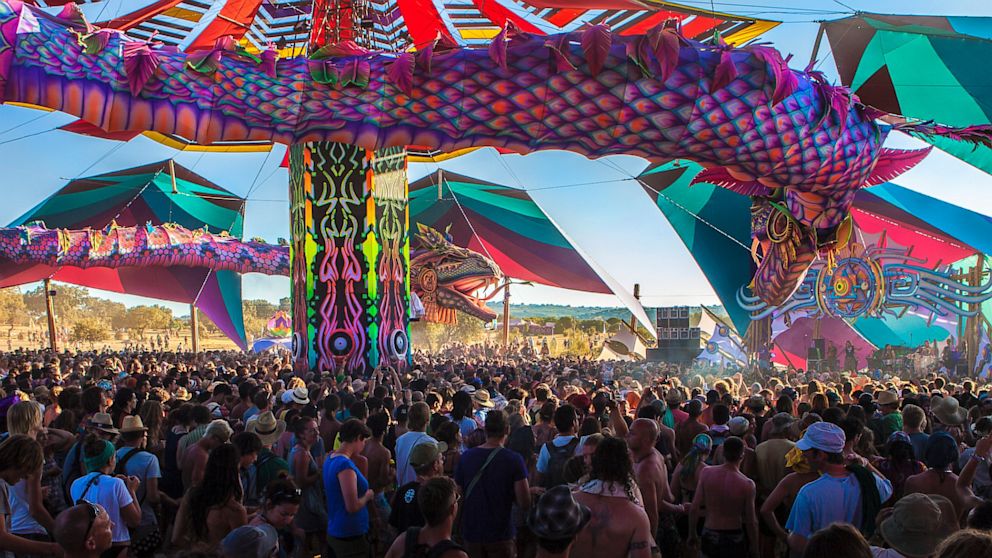A Music Festival Where Drugs Aren’t the Enemy
Who keeps us safe from drugs?

Sept. 6, 2013— -- Two concertgoers died after taking what they believed to be molly -- more formally known as MDMA -- at an electronic music festival in New York City this past weekend.
The New York Post has been particularly critical of the event in the aftermath of the deaths. One anonymous law enforcement source who spoke to the Post said that organizers of the Electric Zoo festival were trying to cover up illnesses by providing emergency medical tents and ambulances at the show.
“It was just another way to keep the cops from finding” out what was going on, the source said. “[The organizers] had tents set up all over. It was like a MASH unit.”
Organizers called that idea “obscene” and New York City Mayor Michael Bloomberg stood behind the event coordinators, who he said had a good track record and made adequate preparations.
That raises a fundamental question, though: who does a better job keeping drug users safe? The police or medical professionals?
One festival in Portugal has banked on the latter, with good results so far, according to the event’s founder.
The Boom Festival is a biannual electronic music gathering that takes place at Idanha-a-Nova Lake, a secluded area near the border with Spain.
If you’ve ever been to an event like this in the U.S., it might sound familiar. Here’s how one blogger described it:
“Boom’s dominant subcultural tone is neotribal: a rave-inflected millennial florescence of hippie shit like long hair, dreads, feral fashion exotica, chai shops, massage booths, copious cannabis consumption, and paganish New Age tantric mysticism.”
You get the point.
There’s one major difference between this festival and the ones that are happening stateside: Portugal decriminalized all drugs in 2000, and takes a more laissez-faire approach to drug use in general.
The Portuguese police focus on pursuing drug traffickers as opposed to chasing down people smoking joints, according to Diogo Ruivo, a 41-year-old who founded Boom in 1997.
That’s allowed the festival team to set up what they call a “KosmiCare” center at the show.
The center, which is located near medical personnel, is “for what we call a psychedelic emergency,” Ruivo said.
The idea that if you’re having a bad trip or if you’re a “newbie,” you can get advice or an explanation of how the drugs work. If the KosmiCare staff think you might be sick, you can be sent over to the medical team on site.
Rather than ignore or suppress drug use, the organizers are acknowledging that it’s going on and trying to deal with it when problems arise, he said.
“For us it wasn’t really logical anymore to keep on looking to the side,” Ruivo said.
According to organizers, they consulted with the local hospital, a fire department, paramedics, security personnel and regional harm-reduction experts to develop the plan.
The Boom Festival isn’t without its problems. One person died of cardiac arrest in 2008, but Ruivo says it wasn’t drug-related. Two people died at a related festival in 2012, as well.
And the KosmiCare attendants aren’t all medical professionals or paid. Some are volunteers and “shamans,” Ruivo said.
We can’t vouch for the overall safety of the event, or any event along these lines, but it presents an alternative to an enforcement-oriented approach.
That’s “super impressive,” in the eyes of Rick Doblin. He’s the founder and executive director of the Multidisciplinary Association for Psychedelic Studies (MAPS), a group that believes psychedelics and marijuana should be legally and safely available to the public.
The group helped the Boom Festival come up with its approach to drug education and treatment.
“It creates a whole climate of comfort at an event,” he said. “I think that there’s a general sense the U.S. has been on a punitive, counterproductive approach, and people around the world are exploring different options.”
Update, 12:30 p.m.: I updated the piece to include two deaths that happened at a festival related to Boom in 2012.




